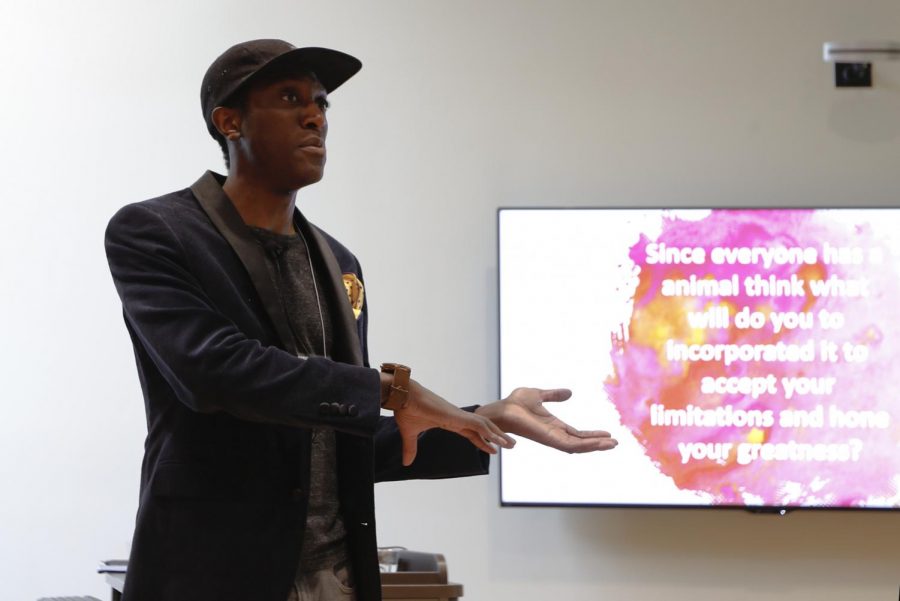Access Center addresses disabilities
Club hopes to bring more awareness to misconceptions on people with disabilities
EZEKIEL NELSON | DAILY EVERGREEN FILE
Nigel Joseph, an Apparel Merchandising, Designs and Textiles graduate student, leads a workshop about creating life goals and overcoming obstacles at the Disability Awareness Symposium on March 28, 2018.
April 4, 2019
The Disabled Students and Allies Club will host its second annual Disability Awareness Symposium on April 8 in the CUB. The WSU Access Center is also sponsoring the event.
Danica Canedo, an awareness coordinator, said breakfast will start at 9 a.m. and the event will occur between 10 a.m. to 4 p.m.
Canedo said workshops for students will be in Butch’s Den, and presentations for faculty will be in the Senior Ballroom.
Access Center Director Meredyth Goodwin said the symposium encourages people to think critically about how disabilities are portrayed in the media.
Goodwin said they are trying to bring awareness to misconceptions in media regarding those who have disabilities.
Last year’s symposium had more faculty, she said, but they hope to involve more students this year.
Access Center Access Adviser Rochelle Dach said she wants students to know about this event because the Services and Activities Fee, which students pay for, helps support the symposium.
Canedo said the theme is “Disability in the Media: Nothing About Us Without Us” and is focused on the lack of representation of disabled communities throughout media.
Dach said one of the workshops will be about how to critically view media’s perspective and how to point out certain stereotypes.
Goodwin said some of the common stereotypes in films involve actors who do not have disabilities but portray people with disabilities, which she said is an issue. Industries are not employing people who actually have disabilities, she said.
Dach said Owen Kent, a University of California, Berkeley alum, will be one of the keynote speakers at the event. Kent wrote and created “Angels of Mercy,” a film about a character with disabilities.
Nicole Bravo, a residential education director for the Office of Multicultural Student Services, said the discussion about diversity and inclusion, race, gender or sexuality are common topics, but disabilities are left out because people do not know what to say or how to say it.
“We have this perception that in colleges and universities, there aren’t [any] students with disabilities or it’s very rare,” Bravo said. “It is not the case.”
Canedo said there is a huge stigma about people with disabilities, and she said she feels there should be a more positive outlook.
“Just because they are disabled, [it] does not mean they are different,” she said.
Goodwin said breaking stereotypes and barriers gives people the opportunity to know how to approach sensitive subjects in a positive way.
“I think it is a great opportunity to think about this topic,” Goodwin said, “and think about how media informs our thoughts and beliefs.”









